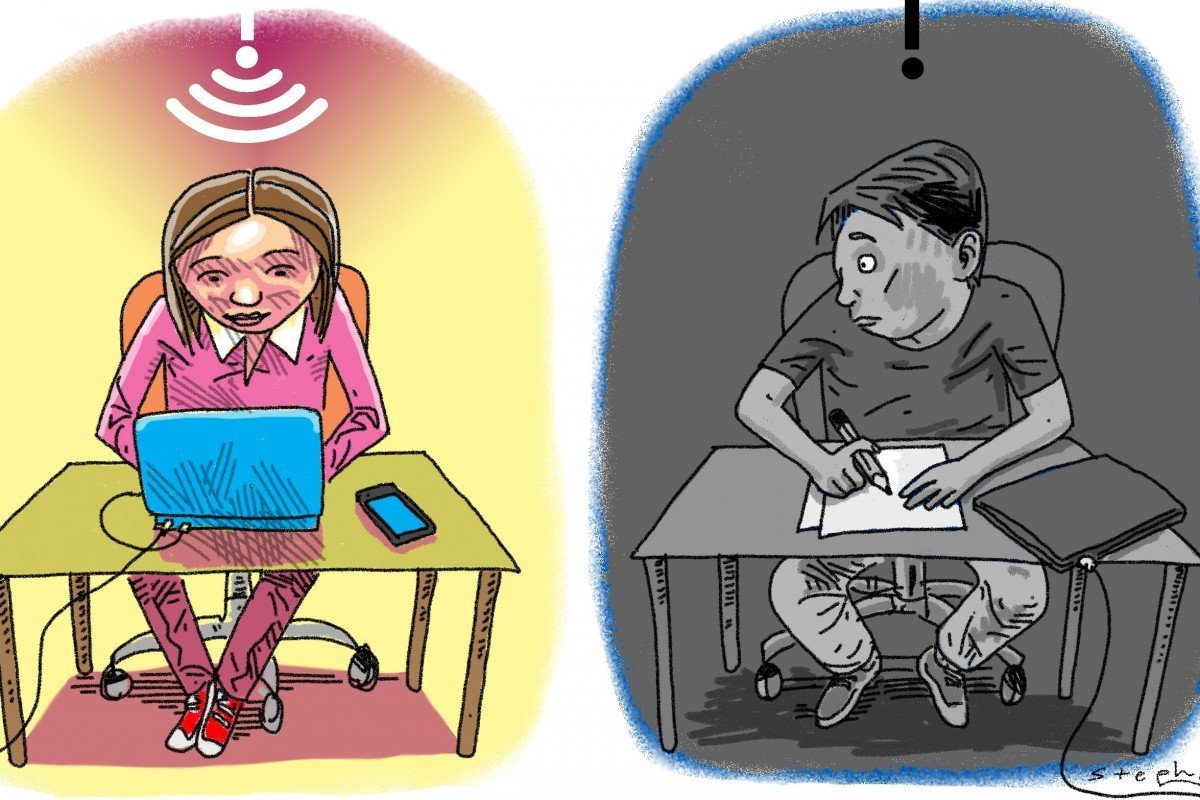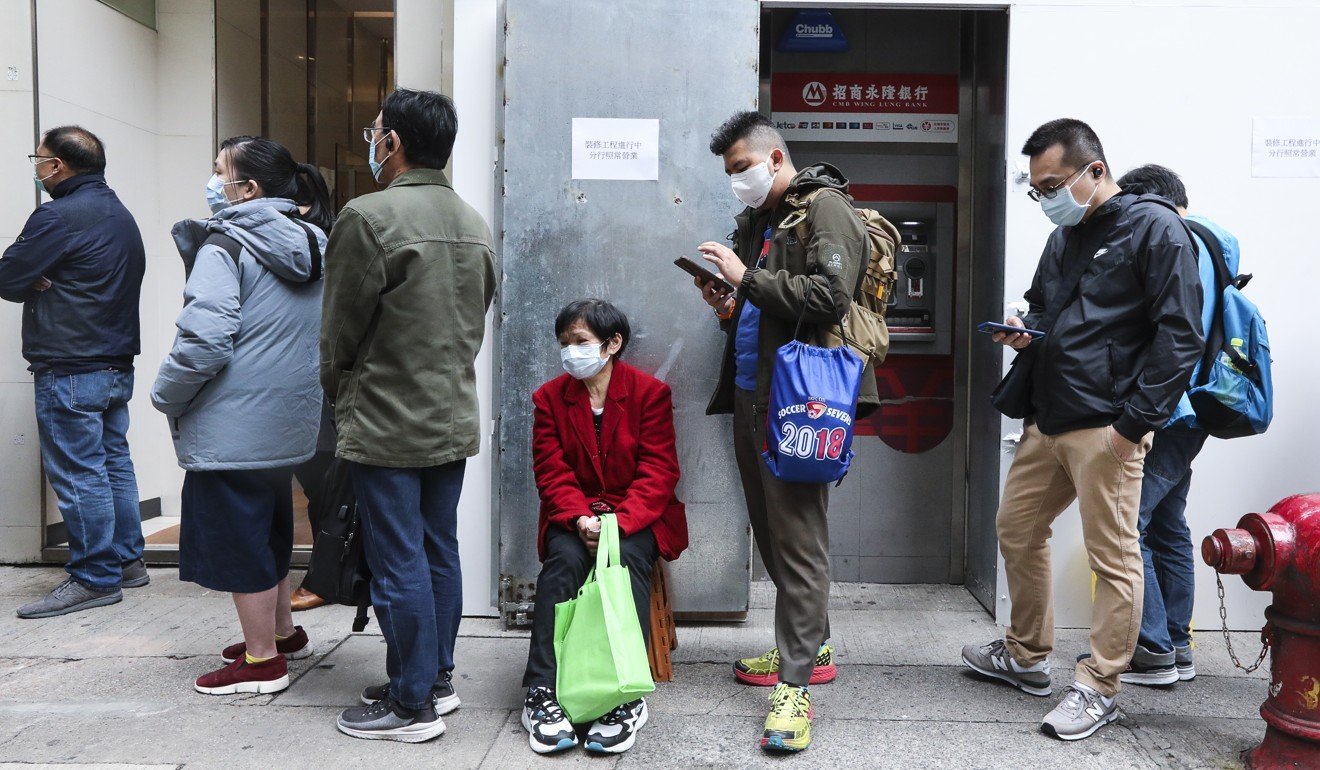Hong Kong News
Hong Kong as well as any other country must address the deeper digital inequalities exposed by the coronavirus pandemic
Other than in public health, the Covid-19 pandemic has exposed the problems of the digital divide in our society. The coronavirus is highly infectious and more lethal than the common flu. As of March 26, it has infected more than 430,000 people worldwide, with over 20,000 deaths. Many nations and cities have ground to a halt, with students sent home to attend classes online.
The quality of education received through online classes depends very much on the home environment, computing equipment, and internet access speed, all of which are related to financial strengths. It tends to favour more resourceful families.
To help students in less-privileged families receive the full benefit of online classes, the government and some charitable organisations are extending their help. For example, the Community Care Fund offers subsidies to students from low-income families to buy computers, while the Hong Kong Jockey Club is giving out 100,000 high-speed mobile data SIM cards to needy schoolchildren.
But the digital divide is about more than access to computers and the internet. The divide also shows up in usage, where people with good access to computing devices and the internet refuse or do not know how to use these technologies in their daily life.
Many of these people still queue up at bank branches and use telephone banking, instead of self-service kiosks and internet banking. Some prefer cash transactions, even though credit cards are widely accepted and we have probably the largest variety of mobile wallets in the world. Despite the convenience of online shopping, it is shunned by many who think it is unsafe and unnecessary.
One example of this divide is when Covid-19 hit Hong Kong. By February, surgical masks were in acute shortage. People were desperate to buy surgical masks and in one incident, more than 10,000 queued up for hours, standing in line from Fanling to Sheung Shui. Long queues were often seen outside pharmacies elsewhere too.
However, many others bought their masks online. I realised I might need surgical masks on January 24 but by then, it was difficult to find them in the retail shops in Hong Kong. So I went online and placed my order with a seller in Japan which could not ship masks to Hong Kong at that time.
I then sent the masks to a consolidator in Japan, who repacked and shipped them to me in Hong Kong. All arrangements including payments and declarations were done online with the help of Google Translate as I do not read or write Japanese. I received my masks on February 10, without having to queue for hours or pay exorbitant prices.
I was not the only one ordering masks online. Most digitally-capable friends and online shopping veterans around me bought their masks online, mostly from other countries. Some people, I heard, had also ordered hand sanitisers and toilet paper from overseas sellers.
The big contrast in how people hunt for masks reflects a deeper inequality. People who lack digital skills are deprived of options. Computers and high-speed internet close the digital divide in terms of access but the more challenging divide in the society is the differential ability to exploit the power of the internet.
In an earlier study, we researched the adoption of the Do Not Call service in the United States, offered by the federal government. In the first 10 days, residents east of the Mississippi river could register only through the internet while residents in the west could register through either the internet or the telephone. We found the registration rate substantially lower in the east, implying that many preferred telephone registration.
This digital divide in usage needs to be better addressed because it can affect people’s lives at critical moments, such as during a global pandemic. Governments in many countries are advising that people work from home and practise social distancing and self-isolation. Such isolation can be facilitated if people know how to exploit the internet, for example, in ordering food and grocery supplies, in paying utility bills, and even in social gatherings.
Having thousands of people queuing on the streets is certainly not a good idea. Such crowds are conducive to virus transmission. They could have been avoided if the sellers and buyers made better use of the internet in allocation and distribution.
The internet is also useful for people in quarantine needing food and essential supplies.
The digital divide in usage affects not only individuals, but also organisations. In many jobs, working from home requires workers to access sensitive organisational or customer data remotely, which is often not welcomed by employers because of security concerns. Some employers also prefer not to let workers take sensitive documents home.
Practically, this means that some employees cannot discharge their duties when working from home. I know this is the case in some government offices, and organisations which have to process a large volume of customer or client data.
Obviously, data security is important and needs to be respected. However, we need to be aware that options are limited at critical times. Organisations ready for digital operation will gain a competitive advantage over those that are not, just as students who are accustomed to online classes have an edge over those who are not.
Note that this is a digital divide in usage, not access. Most organisations, including the government, have ample financial resources to procure computing equipment and high-speed internet access. Their incapability in supporting remote working is more a preparation issue than one of limited resources.
We must address the digital divide in usage. Designing easy-to-use digital applications helps bring individuals, especially those with less education and computer efficacy, on board. Similarly, having secure processes and protocols in place helps lift organisations’ ability to facilitate remote working.
We had the anti-extradition protests last year, and now a pandemic – we do not know when it will end. More challenges could well come soon due to climate change or other contingencies outside our control. Getting everyone digital-ready helps to ensure a more equal and a better world.













